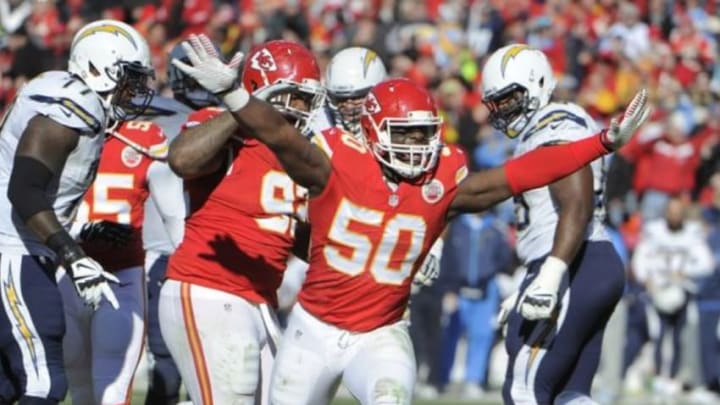
The National Football League has one clause that no other professional league shares in its collective bargaining agreement … the franchise tag. In essence, the tag allows a tag to control a player for two years beyond their original contract at a hefty price, determined by the market for the player’s position.
The system is convoluted and one day, the players will likely bargain it right off the table during labor negotiations. However, it exists in the current time and four teams have decided to use it in 2015. The Kansas City Chiefs applied it to outside linebacker Justin Houston, fresh off his 22-sack campaign, while the Denver Broncos slapped it on receiver Demaryius Thomas. Over in the NFC East, Dez Bryant was kept from free agency by the Dallas Cowboys, and the same can be said for defensive end Jason Pierre-Paul and the New York Giants.
As a quick basis of understanding, these players could have looked for contracts elsewhere, but their current team would have had the right to match any deal. If the team declined to match, the organization offering the contract would be obligated to give its next two first-round picks to the original team. This has not happened in 15 years since the Cowboys stole away Joey Galloway.
On July 15, all four of the aforementioned players must have a long-term deal signed or they must play out the franchise tag for the designated amount. They can holdout through the first 10 weeks and still get another year toward free agency by reporting before the 11th game, but will lose all the money which would have been paid during the holdout. If a long-term isn’t reached by July 15, the club and player can’t negotiate a long-term deal until the season ends.
Got all that? Alright, let’s see where each team/player combo is currently at.
Next: Demaryius Thomas
